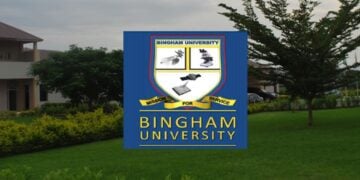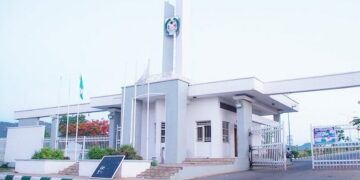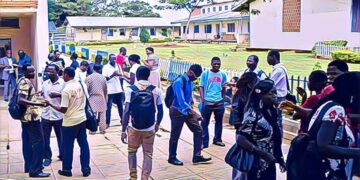The newly appointed Vice-Chancellor of Caleb University, Imota, Lagos, Professor Olalekan Asikhia, has outlined a seven-point agenda aimed at developing students in critical thinking.
This is aim at providing solutions to local issues, tackle global challenges, and embrace Artificial Intelligence ultimately building the total man concept.
Prof Asikhia, who emphasised the need to produce industry-ready graduates by connecting the town with the gown, noted that the implementation of his seven-point agenda would promote inclusive education designed to nurture students into well-rounded individuals who respect the various stakeholders of the institution.
The Professor of Business Administration, disclosed this during a media parley at the university’s Council Chamber.
He listed his vision for the institution to include: creating a godly environment for dream fulfilment; ensuring academic excellence; entrenching research and innovation; facilitating and maintaining local and international linkages and collaborations.
Others are building a world-class entrepreneurial and financially sustainable university; driving enhanced institutional governance and management; and accelerating the university’s action on environmental sustainability.
Asikhia explained that the university had introduced the Caleb University Academic Potentialisation Scheme to assist students with a CGPA below 1.5 by providing tutorials and training to help them catch up with their peers.
“We want to ensure that research becomes our culture that it comes first in everything. The reason is because we have a vision, and what is our vision? We want to be ‘One-in-2030’.
“That is, we aim to be number one in Nigeria and number 20 in Africa by 2030. For impact ranking, we want to be number one in Nigeria. We have set up centres of excellence that will drive and achieve this vision.
“We have about 11 to 12 centres of excellence driving this vision. Apart from our collaborations with industry to solve industrial problems, we are also putting systems in place to ensure that every lecturer and student of this university is innovation-conscious. In other words, we are living innovatively,constantly creating new ideas and solutions within our environment.
“We are also addressing student seriousness and absenteeism through what we call the Citizenship Committee. This committee ensures that students attend classes and remain focused on their academic goals, thereby enhancing the culture of excellence,” he added.
On the university’s collaboration strategy with industry and government, Asikhia said it has developed a global collaboration strategy that brings together all the key players worldwide who can facilitate our vision.
“We are driving industry-academia synergy. For instance, our Deputy Vice-Chancellor (Academics) presented at an ongoing international conference on ‘Smart Collaboration’ — which focuses not just on cooperation, but on ensuring that innovation emerges from every partnership.
“We are working with industry players to identify what they can do differently. We also plan to provide certain facilities and equipment that industries may not have, making our university a hub where industrial players can conduct their activities from time to time. We have a five-year projection to achieve this.”
The Vice-Chancellor further disclosed that plans are underway to establish an independent power generation system to ensure reliable electricity supply on campus, following previous inefficiencies with contractors.





